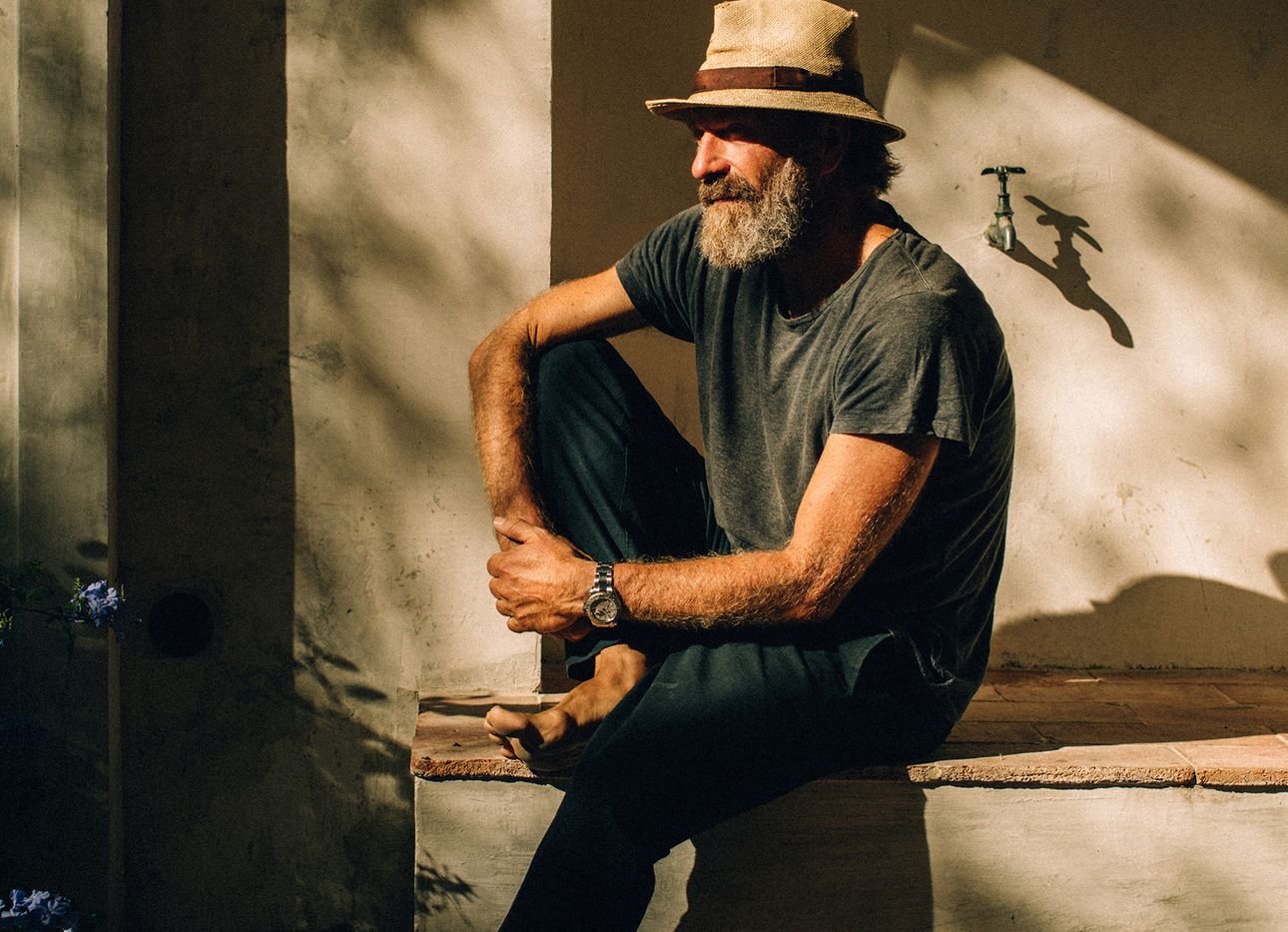
The Media That Shapes Claus Sendlinger and His Slow Hospitality Brand
Several years ago, Claus Sendlinger began contemplating ways to address his concerns about overdevelopment in the boutique hotel industry, the one he helped nurture with Design Hotels, an international network of independent, style-focused properties, which he founded in 1993 and led as CEO until 2018. Fascinated by various mindful practices he observed germinating across society—such as the Slow Food movement, adaptive reuse, and regenerative agriculture—the German entrepreneur found himself shifting away from the man-made design and technological innovations that drove his earlier work, and toward a more considered notion of travel. His philosophizing resulted in his co-founding, with consultant Peter Conrads, of Slow, a hospitality venture dedicated to creating places that draw upon their locations’ culture, environment, and history as a means to help visitors reconnect with nature, with others, and with themselves. To bring each property to life, Sendlinger assembles a transnational collective of designers, farmers, artists, chefs, and architects whose work engages with slowness and well-being.
The company’s first project, completed in 2016, transformed an agricultural plot in Ibiza into an elegant, contemporary take on an agriturismo (farmhouse retreat) called La Granja. The working farm practices regenerative agriculture, and teaches visitors how it benefits the planet through workshops and community-based projects. (The initiative is taking a break this year, but plans to reopen in another location soon.) Additional properties include Mexico’s Tulum Treehouse, a five-room guesthouse with an open-air restaurant and ceramics studio, and an ancient grains bakery in Berlin’s Mitte district. Upcoming projects range from a multi-building retreat in Lisbon’s historic Graça neighborhood to a buzzing creative campus (the site of Slow’s headquarters) along Berlin’s Spree River. A blend of artist residencies, classes, exhibitions, and collaborations with area arts and environmental organizations further connect visitors with the literal and figurative landscapes surrounding each property.
Sendlinger eschews online booking and social media, preferring to investigate ways to enhance Slow (an acronym for Sensitive, Local, Organic, and Wise) in the physical realm. We recently asked him about his media diet, which focuses on stories about the built and natural environment and apps that help him slow down.
How do you start your mornings?
I used to wake up to read and worry about the [excess] in the hotel market. You can see that everywhere, in Condé Nast Traveler, Travel+Leisure, but also in The Wall Street Journal. There was so much money in hotels, yet everyone was merely replicating their own brand with another brand. All of this went against the original concept of boutique hotels, and I felt it was not very innovative.
Now, I start my mornings with Japanese green tea. While I’m drinking my tea, I read the news: Süddeutsche [Zeitung], a daily newspaper from Munich, and Frankfurter Allgemeine Zeitung, from Frankfurt. On the weekends, I’ll add Die Zeit, the German national newspaper. I read the news in German, but ninety-five percent of my other reading is in English.
Then I do my morning workout with the Seven app, which really does allow you to keep in shape in just seven minutes a day. Three or four times a week, I go on the Waking Up app, created by neuroscientist and philosopher Sam Harris, and meditate.
What are you watching or reading for fun?
Learning about how to be extremely healthy, for ourselves and for the earth, has been feeding into what we’re doing with Slow. My boys are 9 and 13 years old. Together, we love to watch movies like Kiss the Ground, a documentary about regenerative agriculture, and the new documentary The Year Earth Changed, which is narrated by David Attenborough. It’s a fantastic look at how locking humans down [during the pandemic] allowed nature to flourish.
I also read a lot about urbanism. Right now I’m working through Rem Koolhaas’s Countryside, A Report, the companion book to his 2020 exhibition “Countryside, The Future” at the Guggenheim Museum. Instead of traveling far, it’s about going close. I’m finding a lot of relevance with that concept in my current work.
Any guilty pleasures?
Before I read the world news in all of those papers, I start with … the sports pages.
What media do you bring with you on an airplane?
Airplanes are for magazines, because I still love print. Wherever I travel, I stop at the airport newsstand to see what publications I can discover. My latest find is Holiday, which originally started just after World War II and featured contributors including Truman Capote and John Steinbeck. I enjoy not turning anything on while I’m up in the air.